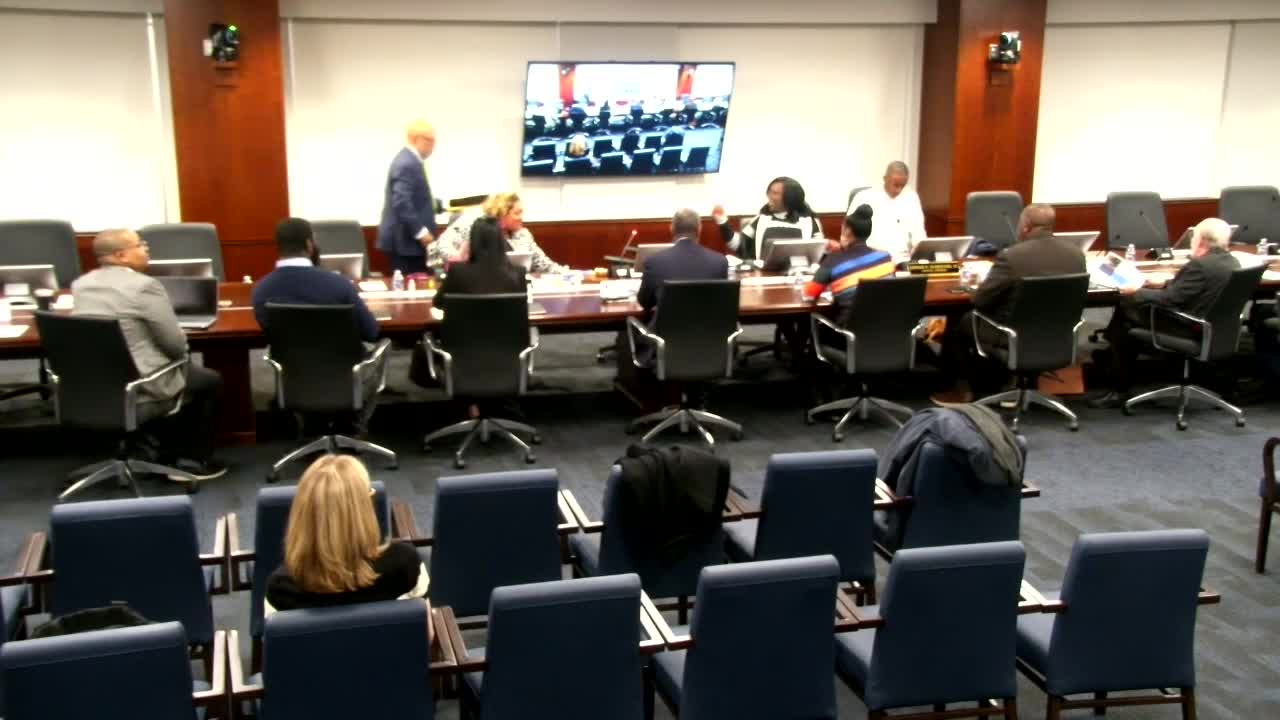Committee backs bill to ease tax burden for justice‑involved professionals
Get AI-powered insights, summaries, and transcripts
Subscribe
Summary
Prince George’s County General Assembly Committee voted unanimously to move SB 295 (mirror HB 634) favorably. The bill, supported by a local reentry advocate, would establish tax relief and an income tax reconciliation program for people who lose income due to criminal justice involvement, with a federal counterpart under development.
The Prince George’s County General Assembly Committee voted unanimously Jan. 28 to move Senate Bill 295, the Maryland Fair Taxation for Justice‑Involved Individuals Act, favorably to the full delegation. Committee members said the measure targets tax and financial reconciliation for professionals who returned from incarceration and face lingering financial harms.
The bill’s principal local advocate, Dr. Johnson, told the committee SB 295 (and the mirror House bill HB 634) grew from conversations with returning professionals who “suffer quietly” with financial consequences after incarceration. “When I came home three years later, I was left with a financial mess,” Dr. Johnson said, identifying herself as the founder of Helping Ourselves to Transform and director of CourtWatch Judicial Accountability with Life After Release. She said the bill focuses on returning professionals who typically do not need housing or drug treatment but do need targeted financial relief.
Why it matters: supporters said the bill would create a state program to reconcile income tax consequences that follow incarceration, a problem they said falls outside many existing reentry services. Daryl Barnes of Barnes International told the committee the measure had been developed with input from the Comptroller and local delegates and that a federal IRS counterpart is being explored with Congressman Glenn Ivey.
Committee action and next steps: Vice Chair Fisher moved a favorable report, seconded by Council Member Arrieta. Chair Hawkins, Vice Chair Fisher, Council Member Arrieta and Council Member Burrows each recorded an oral “aye” when the clerk called the roll; the motion passed 4–0. Dr. Johnson told the committee the House mirror bill, HB 634, is scheduled for hearing Feb. 6 at 1 p.m.
Discussion vs. decision: the committee’s vote was a procedural favorable report to the full delegation; the transcript records no final state enactment or ordinance by the county. The committee did not adopt implementing language or fiscal specifics during the meeting.
Evidence: proponents’ statements and the roll call occurred on Jan. 28 during the committee meeting.
